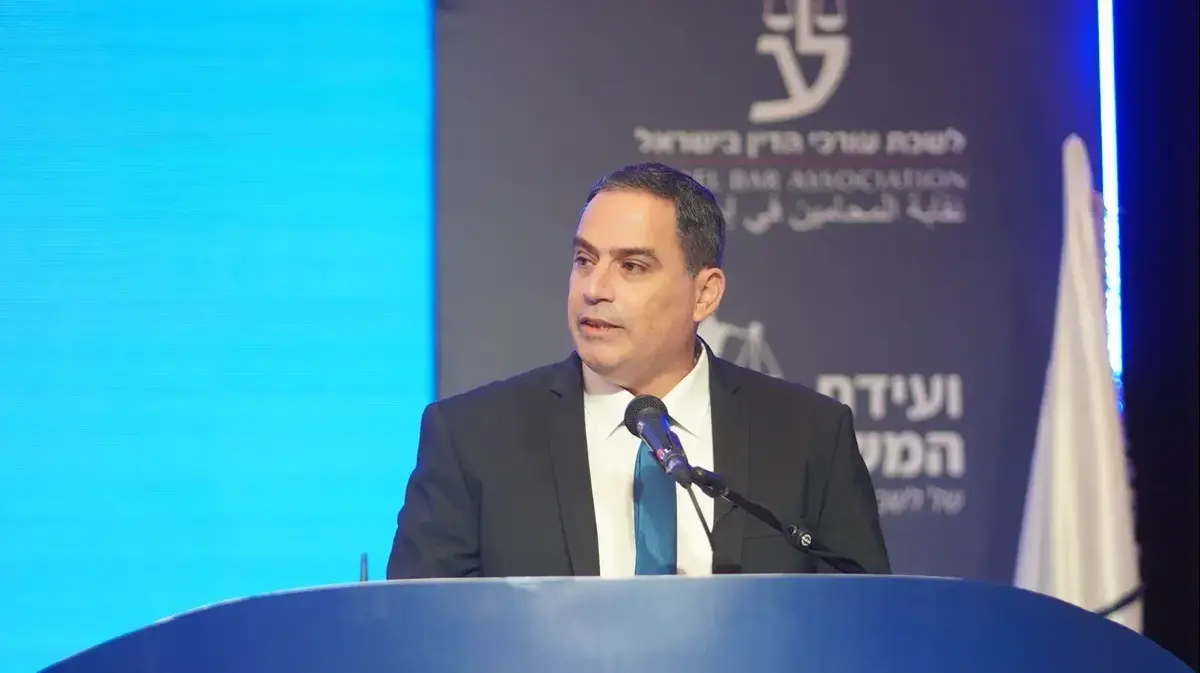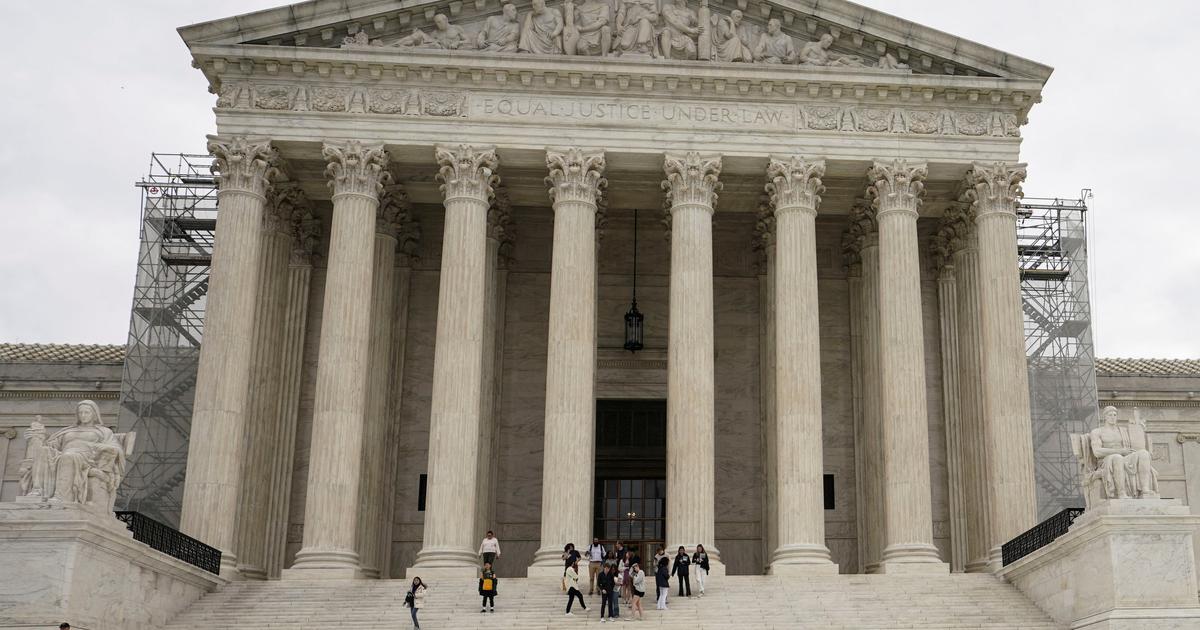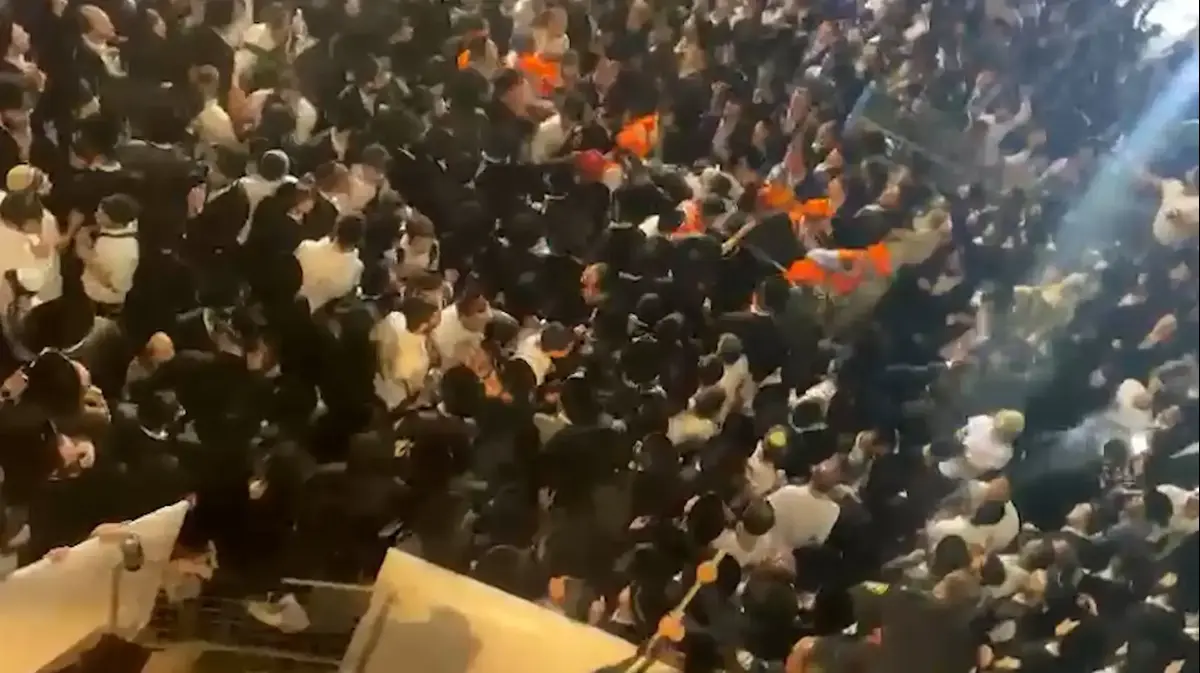The Supreme Court ruined the celebrations of the 4th of July for millions
The United States is marking its 264th Independence Day today, but millions of citizens in the country, once a refuge for all who sought freedom, now do not feel they have anything to celebrate, after an extraordinary Supreme Court session - locked after some controversial rulings Most in its history
Tali Goldstein
04/07/2022
Monday, 04 July 2022, 11:10 Updated: 17:09
Share on Facebook
Share on WhatsApp
Share on Twitter
Share on Email
Share on general
Comments
Comments
Abortion, Weapons and Religion - The last session of the Supreme Court in the United States could not have been more controversial.
It was the first full session of the nine incumbent judges, including the three justices appointed by former President Donald Trump - a session in which a majority of six conservative justices, against three liberal justices, established their control and paved the way for the ruling trend in the following decades. 51 years old, and serving as a Supreme Court justice until his death, or dismissal).
"It was a revolutionary session in so many ways," Tara Lee Grove, a law professor at the University of Texas, told the New York Times.
"The court has significantly changed the constitutional law."
On Thursday, the Supreme Court ended its session and went on summer vacation, just before the Fourth of July celebrations - the nation's 264th Independence Day.
But some of his recent rulings this year have left millions of American citizens with no particular reason to celebrate the day the country in which they were born was founded.
According to a June 24 Gallup poll, only 25 percent of Americans - an all-time low - said they had "full" or "high" confidence in the Supreme Court, compared with 36 percent in the same period last year, compared to the previous low of 30 percent. In 2014.
Confidence and confidence in the institution fell among Democrats - from 30% to 13% - and the self-employed - from 40% to 25% in the same period. As evidence of an agenda that is consistent with their views,
here are the major rulings of the Supreme Court in the last session:
The Conservative bloc, the liberal bloc (Photo: Reuters)
Climate change - damage to the planet
In the West Virginia case against the Environmental Protection Agency (EPA), the court ruling restrained the agency's ability to monitor the energy sector extensively and implement sweeping policies necessary to reduce greenhouse gas emissions.
Instead, it allows for very narrow regulation that may lead to a reduction in emissions at individual power plants only.
The decision will make it very difficult for President Joe Biden to meet the target set of 50% emissions cuts by 2030.
The ruling was passed by a majority of 6 to 3, with the three liberal judges on the opposing side arguing that the majority's decision deprived the agency of "power to respond The urgent environmental challenges of our time. "
The ruling is also a significant victory for conservatives who have been working for years to reduce or completely abolish government regulation on the economy, known as the "administrative state" - a system of agencies set up by Congress to oversee the economy on a variety of issues. Medicines, cars and consumer products are safe to use.
"If there are no regulations, the only people who will benefit from it will be the ones without laws, making more money," said Marietta Robinson, former commissioner of the Consumer Products Safety Commission, "at the expense of everyone else."
Migration - An extraordinary victory for Biden
In the Biden v. Texas case, the court ruled that the Biden administration could overturn a Trump-era immigration plan that requires asylum seekers who reach the southwestern border to wait for approval in Mexico.
The ruling passed by a 5-4 majority.
Court President John Roberts wrote in the majority opinion that the Immigration Act gives the President discretion to return immigrants who come through the continent to the country from which they came.
The decision was a victory for the Biden administration, which since taking office has tried to put an end to Trump's plan.
Since the program, popularly known as "Remain in Mexico," began, tens of thousands of people have been waiting in tent camps, in unsanitary conditions, for their immigration hearings.
Reports from the camps told of sexual assaults, abductions and torture.
American Indians - Harm to Minorities
In the Oklahoma v. Castro-Huarta case, the Supreme Court ruled that state authorities now have the power to sue in certain tribal cases, effectively undermining a legal precedent that has been in place for centuries that only the federal government and tribes have jurisdiction over reserves. The country.
The ruling is a severe blow to tribal sovereignty over their lands and their administration, said Indian law experts and tribal leaders.
The fear is that the states will now oppress the sovereignty of the tribes to prosecute crimes on their lands in a way that is based on the customs of the community that matches their needs and lifestyle.
State intervention could complicate domestic violence lawsuits or sexual assaults.
Another concern is that the High Court could erode other areas where the federal government and tribes had authority, such as environmental regulation and child welfare in the reserves - and give more power to individual states in practice.
The ruling was passed by a 5-4 majority, with Barrett's vote decisive.
Oklahoma Attorney General John O'Connor happily accepted the decision, saying "it justifies my firm's prolonged efforts to protect all Oklahoma residents - Native Americans and non-Native Americans alike."
Chuck Hoskin Jr., the Cherokee Nation chief said the ruling is a betrayal.
"Through the decision, the Supreme Court ruled against a legal precedent and the basic principle of congressional authority and Native American law."
School prayers - violation of the separation of religion and state
In a Canadian case against Bremerton School District, the court ruled that a public high school football coach has the constitutional right to pray on the football field after his team's games - an extension of the role of religion in public life.
The ruling was passed by a 6-3 majority, with opposition from the three liberal judges.
A week earlier, the Supreme Court in the Carson v. Maine case ruled that the state of Maine could not prevent religious schools from receiving state budgets intended for public schools only.
Judge Gorsch wrote the majority opinion and explained that the prayers of the coach, Joseph Kennedy, are protected by the First Amendment to the Constitution which guarantees freedom of expression, and that the school district erred in suspending it.
"Respect for religious expressions is essential to living in a free and diverse republic - whether it happens in a house of prayer or on the field, or through prayer or bowing of the head," he wrote.
In the dissenting opinion, Judge Sotomior wrote that the majority had been lost by prioritizing the religious rights of a senior school official over his students, who might now feel pressured to participate in religious activities.
Earlier this year, the court ruled in a cartel case against Boston in favor of a religious group seeking to hoist its flag in front of the Boston City Hall, and in favor of a Texas inmate in a Ramirez case against Collier, who asked his pastor to lay his hands on his head while praying for him during execution.
Another ruling supported that the Trump administration would allow workers with religious reasons not to provide contraceptive coverage as part of facts health programs.
The right to abortion - division of the state and violation of human rights
In Dobbs' ruling against Jackson's women's health organization, the court reversed its own precedent from 1973, which ruled in the Roe v. Wade case that women across the United States have the right to a safe abortion.
The new ruling states that the Mississippi state law that abortion is prohibited after the 15th week is unconstitutional.
The ruling, which passed a 6-3 majority, has enforced new restrictions on abortions in many states in the United States and effectively split the state into two - states that restrict and may even ban, the possibility of having an abortion, and states that will protect the right to safe abortion.
Weapons - danger to the public
In the New York State Rifles and Guns Association case against Baron, the court ruled that states that impose strict restrictions on carrying weapons in public violate the Second Amendment to the Constitution, which protects the right of U.S. residents to carry weapons.
In a 6-3 majority ruling, which came after two deadly shootings in Buffalo and Texas (where 19 elementary school students were killed), the court ruled that Americans have the right to carry a concealed weapon in public spaces as opposed to storing it at home.
In doing so, the court overturned a New York State law that imposed strict restrictions on carrying weapons outside the home, and led to the abolition of similar restrictions in other states.
The second amendment, Judge Clarence Thomas wrote in the majority opinion, protects "a person's right to carry a weapon for self-defense outside the home."
States can ban the carrying of weapons in schools or government buildings.
State secrets - violation of human rights
In the United States case against Zubeida, the Supreme Court has ruled that the government should not disclose the location of a CIA black website where a detainee was held and tortured.
Abu Zubeida, a detainee at the Guantanamo Bay detention facility in Cuba, tried to obtain information from two former CIA contractors involved in his torture, but the court ruled that such an investigation would reveal state secrets and confirm the location of the black site, which is widely known in Poland.
The judges ruled against Zubeida by a 6-3 majority.
Judge Gorsch joined Sotomior and wrote in the opposing opinion that the government was trying to prevent "further embarrassment due to its past mistakes".
"The facts are hard," he wrote.
"We already know that our government has brutally treated Zobadia - more than 80 tortures in the style of waterboarding, hundreds of hours of life burial and rectal feeding. More evidence is certainly in government safes. But embarrassing as it may be, it is not a state secret.
Legal immunity for elected officials - an extraordinary loss for Trump
In the Trump v. Thompson case, the Supreme Court ruled that former President Donald Trump could not block the transfer of documents from the White House to the House committee investigating the attack on Capitol Hill on January 6, 2021. The
ruling was passed by a majority of 8-1, requiring full information The attack and the attempt to disrupt the November 2020 election results approval process outweighs Trump's desire to maintain the confidentiality of the White House's internal communications.
news
World news
America
Tags
United States
U.S. Supreme Court









